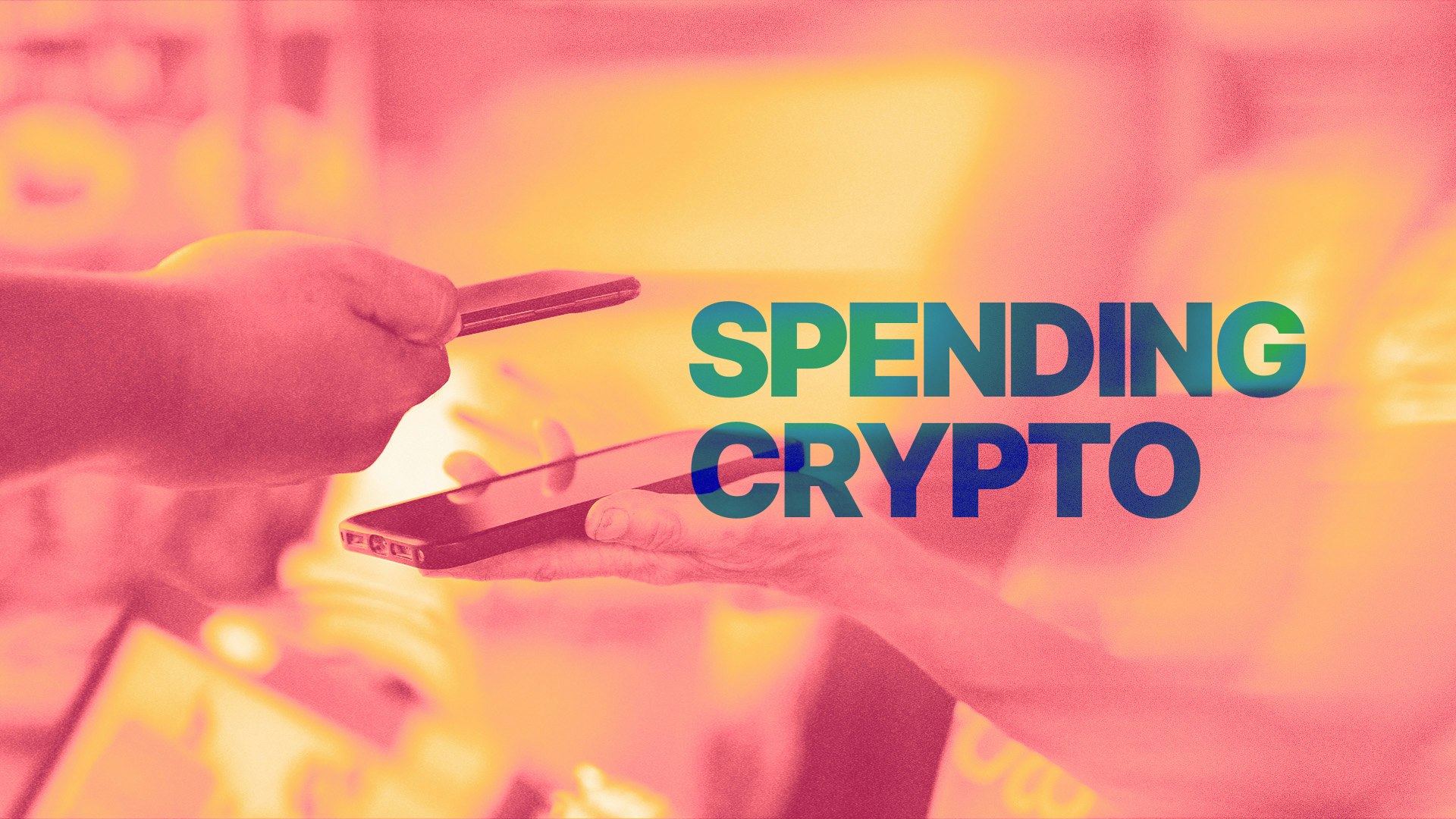What Can I Buy with Crypto? A Guide to Spending Digital Assets
From coffee to cars, here is how to turn your digital portfolio into real-world purchasing power.
In this article...
- Cryptocurrency is no longer used only for speculation. In some cases it can be used to pay for travel, luxury goods and everyday services, although acceptance is still limited and can change.
- Many merchants rely on specialist payment processors that accept crypto from you, then convert it to local currency for them, usually in seconds. There can be fees and exchange‑rate costs involved.
- Spending cryptocurrency is often treated as a taxable disposal. In the UK this can create a Capital Gains Tax (CGT) obligation, even for small everyday purchases.

You have set up a wallet, bought your first Bitcoin, Ethereum or other token, and watched the price move up and down. At some point, you might start to wonder what you can actually do with it, apart from holding or trading.
One common myth is that crypto sits in online wallets just to trade for speculation purposes. In reality, there are growing, although still niche, ways to connect your crypto to everyday spending.
You might be able to book a flight, buy a game, or purchase a gift card for a major retailer using digital assets.
How Spending Crypto Actually Works
When you spend cryptocurrency, the transaction usually fits into one of three broad methods. Each works slightly differently and each carries its own risks, costs and practical issues.
Understanding the basics can help you decide whether spending crypto is suitable for you at all.
1. Direct peer‑to‑peer transfer
A direct transfer is the most “crypto‑native” way to pay. For example, you might hire a freelance designer or buy from a small merchant who is comfortable taking crypto.
They share a wallet address or QR code. You send the agreed amount of crypto straight from your wallet to theirs, with no bank or card company in the middle.
This can be fast and avoids card fees, but both sides are exposed to price volatility. The value of the crypto can move a long way between the time you agree a price and the time the transaction is confirmed.
There is also no built‑in buyer protection. If something goes wrong, you cannot reverse the payment in the way you might try with a card chargeback.
2. Crypto payment processors
Established businesses might not want to hold volatile digital assets. They may prefer pounds, euros or another local currency in their account.
To achieve this, some merchants use crypto payment processors. You can think of these processors as digital equivalents of card terminals, although they are separate firms with their own risks, fees and terms.
At an online checkout that supports crypto:
- The payment processor calculates how much crypto is needed based on the live exchange rate and generates a QR code or address.
- You send the funds from your wallet.
- Once the transaction is detected, the processor locks in the rate for a short period and usually converts the crypto to cash (for example GBP, EUR or USD) for the merchant.
This can reduce volatility risk for the merchant and can make the process smoother for you. However, it introduces a new counterparty. You are relying on the payment processor’s systems, security and solvency.
Fees, minimum amounts and refund processes will depend entirely on the provider and the merchant’s own policies.
3. Crypto debit cards
Many physical shops, such as supermarkets or local cafes, do not accept crypto at all. In these cases, some people use crypto‑linked debit cards issued by specialist providers.
These cards are connected to your crypto balance. When you pay at a shop, the provider sells enough of your crypto behind the scenes, converts it into fiat currency, then pays the merchant over a standard card network such as Visa or Mastercard.
To you, it can feel similar to using an ordinary debit card. In reality, each purchase is also a disposal of your crypto. That can trigger a tax event and can involve spreads, FX fees and provider charges.
Real‑world examples: What can you buy?
The types of goods and services you can buy with crypto are broad, but availability is inconsistent. Acceptance can depend on country, provider and even the specific store.
Here are some of the more common categories where crypto spending is seen in practice.
Travel and tourism
Travel has been one of the more crypto‑friendly sectors. Certain online platforms allow users to book hotels, flights and other travel services using a range of cryptocurrencies.
In some cases, airlines, tour operators or private jet charter firms may accept Bitcoin for bookings. These arrangements can change quickly and are usually handled via third party payment processors.
Technology and online services
Technology and online services were early adopters of digital payments. Depending on the provider and your location, you may be able to:
- Pay for VPN subscriptions and privacy tools.
- Buy web hosting, domains or cloud storage.
- Top up balances with crypto on certain software or gaming platforms, where supported.
These options can suit people who are already active in crypto.
Gift cards
If a retailer does not accept crypto directly, some people use gift cards instead. Specialist websites sell digital gift cards for thousands of brands. You pay with crypto and receive a code to spend at the chosen retailer.
This can increase your spending options, but there are trade‑offs. You may face higher fees or unfavourable exchange rates. Once you convert to a gift card, you are usually locked into that store, with limited refund rights.
Luxury goods
Some high‑value items such as luxury watches, cars and even property have been marketed as “payable in crypto”.
Large crypto payments can settle quickly compared with some bank transfers.
The tax implications of spending
Before you buy a coffee with crypto, it is important to understand how HM Revenue & Customs (HMRC) treats that transaction.
In the UK, most individuals’ crypto holdings are treated as property or an investment asset for tax purposes, not as currency. This means that using crypto to pay for goods or services is normally treated as disposing of that asset.
This can create a Capital Gains Tax liability, even where the amount spent is small.
Risks and red flags
Spending crypto can feel similar to using digital payments or a bank card, but the risks are different. In many cases they are higher.
Here are some of the key issues to consider.
- No chargebacks: Most blockchain transactions are final. Once you send funds to a merchant or another person, you cannot ask a bank or card provider to reverse the payment. If a seller fails to deliver or a service is poor, you must rely on their goodwill or the local legal system.
- Price volatility: Crypto prices can move sharply within minutes. If you agree a price in pounds but pay in crypto via a direct transfer, the GBP value can change between agreement and final confirmation. Payment processors may reduce this risk slightly with short price locks, but they cannot eliminate it.
- Input errors: Sending to the wrong address or using the wrong network (for example, sending crypto on a chain that the recipient does not support) can lead to permanent loss of funds. There is usually no central party who can recover the money. Always double‑check addresses and network details.
- Security risks: To spend crypto, you usually need access to your private keys or to a custodial service that holds them for you. Poor security, phishing links, fake apps and malware can all result in theft. Unlike a bank account, stolen crypto is often impossible to get back.
- Privacy concerns: Public blockchains are transparent. If you pay a merchant directly from a personal wallet, they may be able to see your wallet balance and some of your past transactions. Over time, payments can be linked together and may reduce your financial privacy.
- Regulatory and consumer protection gaps: Many crypto services are based overseas and may not be regulated by UK authorities. You may not have access to UK complaints processes or statutory protections if something goes wrong.
Before using crypto for everyday spending, think about whether you can afford to lose the amount involved and whether a traditional method of payment would be safer or simpler.
Summary
Spending cryptocurrency is no longer just a novelty. Through peer‑to‑peer transfers, payment processors, gift card services and crypto debit cards, it is now possible in some cases to pay for travel, online services, gift cards, luxury items and donations using digital assets.
Spending crypto will not be right for everyone. If you choose to use it in this way, take time to understand how each payment method works, what consumer protections are (and are not) available, and how tax may apply to your situation.

Suggested Articles

XRP Price Predictions: We Asked AIs, Here's What They Said
Everyone loves a crypto price prediction. What do the most popular AIs predict for the price of XRP at the end of 2025?Read more
Binance Account Statement: How to Get One Sent to You
Having trouble getting a Binance Account Statement? Here is a simple explanation that may be easier to understand.Read more
Data Extracted from the CoinJar Exchange Could Flag When to Buy
We take a big long look at market behaviour, seasonal trends, and investor demographics, and give you the skinny on what we discovered. Read moreBrowse by topic
Standard Risk Warning: The above article is not to be read as investment, legal or tax advice and it takes no account of particular personal or market circumstances; all readers should seek independent investment advice before investing in cryptocurrencies.
The article is provided for general information and educational purposes only, no responsibility or liability is accepted for any errors of fact or omission expressed therein. Past performance is not a reliable indicator of future results. We use third party banking, safekeeping and payment providers, and the failure of any of these providers could also lead to a loss of your assets.
We recommend you obtain financial advice before making a decision to use your credit card to purchase cryptoassets or to invest in cryptoassets.
Capital Gains Tax may be payable on profits.
CoinJar's digital currency exchange services are operated in the UK by CoinJar UK Limited (company number 8905988), registered by the Financial Conduct Authority as a Cryptoasset Exchange Provider and Custodian Wallet Provider in the United Kingdom under the Money Laundering, Terrorist Financing and Transfer of Funds (Information on the Payer) Regulations 2017, as amended (Firm Reference No. 928767).
In the UK, it's legal to buy, hold, and trade crypto, however cryptocurrency is not regulated in the UK. It's vital to understand that once your money is in the crypto ecosystem, there are no rules to protect it, unlike with regular investments.
You should not expect to be protected if something goes wrong. So, if you make any crypto-related investments, you're unlikely to have recourse to the Financial Services Compensation Scheme (FSCS) or the Financial Ombudsman Service (FOS) if something goes wrong.
The performance of most cryptocurrency can be highly volatile, with their value dropping as quickly as it can rise. Past performance is not an indication of future results.
Remember: Don't invest unless you're prepared to lose all the money you invest. This is a high-risk investment and you should not expect to be protected if something goes wrong. Take 2 mins to learn more.
UK residents are required to complete an assessment to show they understand the risks associated with what crypto/investment they are about to buy, in accordance with local legislation. Additionally, they must wait for a 24-hour "cooling off" period, before their account is active, due to local regulations. If you use a credit card to buy cryptocurrency, you would be putting borrowed money at a risk of loss.
We recommend you obtain financial advice before making a decision to use your credit card to purchase cryptoassets or to invest in cryptoassets.
Your information is handled in accordance with CoinJar’s Privacy Policy.
Cryptoassets traded on CoinJar UK Limited are largely unregulated in the UK, and you are unable to access the Financial Service Compensation Scheme or the Financial Ombudsman Service.
We use third party banking, safekeeping and payment providers, and the failure of any of these providers could also lead to a loss of your assets.
We recommend you obtain financial advice before making a decision to use your credit card to purchase cryptoassets or to invest in cryptoassets. Capital Gains Tax may be payable on profits.
CoinJar’s digital currency exchange services are operated in the UK by CoinJar UK Limited (company number 8905988), registered by the Financial Conduct Authority as a Cryptoasset Exchange Provider and Custodian Wallet Provider in the United Kingdom under the Money Laundering, Terrorist Financing and Transfer of Funds (Information on the Payer) Regulations 2017, as amended (Firm Reference No. 928767).
Apple Pay and Apple Watch are trademarks of Apple Inc. Google Pay is a trademark of Google LLC.
This site is protected by reCAPTCHA and the Google Privacy Policy and Terms of Service apply.

